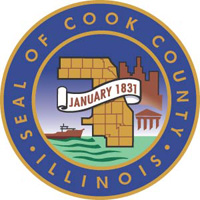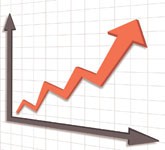Appealing Your Property Taxes at the Cook County Board of Review
 Did you miss your window to appeal your property taxes with the Cook County Assessor, or did you file an appeal with them only to have it denied?
Did you miss your window to appeal your property taxes with the Cook County Assessor, or did you file an appeal with them only to have it denied?
You only have a month to appeal and the Cook County Assessor’s Office only sends out one assessment notice to a homeowner when the window to appeal opens for your township.
Don’t Panic
If so, remain calm: you can appeal when the Cook County Board of Review opens their window for your township in the second half of this year. Their purpose: “Ensuring Fair and Timely Review of Property Assessment Appeals throughout Cook County.” As it states in their mission statement, “The Board of Review serves to be an impartial judge of property assessments; a separate office to provide a check and balance to the Assessor’s Office which is responsible for initially determining your total assessment.”
The Board of Review has the authority to reduce your property tax assessment and our clients were successful 77% of the time last year with appeals through their office. Board of Review property results come 3-6 months after their appeal window closes. Have no fear: even if you receive results in the new year your new revised assessment will be applied to your second installment tax bill!
Why Appeal Twice, Each Year
Even if you did appeal your property taxes with the Cook County Assessor, an additional reduction is still possible by also appealing with the Board of Review. Our clients’ more than 10,000 successful appeals include many instances of achieving property tax reductions at both the County Assessor and the Board of Review.
And, because so much changes from year to year, we recommend that you appeal every year with both the Cook County Assessor and Board of Review, especially in the first year of each township’s triennial reassessment.
What Are You Waiting For?
Since there are no costs and absolutely no risk, all Cook County homeowners should consider appealing their property taxes at these offices. Consider also using a service like ours: no upfront costs, no risks and we track all the deadlines at both offices so you don’t have to.



 According to findings by The Heartland Institute, Cook County property tax collections rose from $7.89 to $11.69 billion (a 48% increase) from 2000 to 2010, which is twice the rate of inflation during that period. Property taxes levied by Cook County government remained flat, so here’s where the increases came from:
According to findings by The Heartland Institute, Cook County property tax collections rose from $7.89 to $11.69 billion (a 48% increase) from 2000 to 2010, which is twice the rate of inflation during that period. Property taxes levied by Cook County government remained flat, so here’s where the increases came from: Each property tax installment bill identifies exactly where your property taxes go.
Each property tax installment bill identifies exactly where your property taxes go.  Cook County property tax bills are expected to be released on July 1, 2015. According to the
Cook County property tax bills are expected to be released on July 1, 2015. According to the  Over 90% Success Rate on Property Tax Appeals & Protests
Over 90% Success Rate on Property Tax Appeals & Protests No Up-Front Fees
No Up-Front Fees